#Infotainment
Better Late Than Never: 2018 Mazda 6 Gets Free Tech Upgrade
Mazda is upgrading the infotainment system of the 2018 Mazda 6 with Apple CarPlay and Android Auto. Starting in September, the company will even allow owners who purchased one earlier in the year bring their vehicle into the dealership and have it upgraded, free of charge.
While that’s incredibly kind of them, there’s a catch. You have to own the Touring trim or above. If you bought a lesser Mazda 6, you’ll be out left out in the cold. But the automaker previously said it wouldn’t include the popular phone integration setup until 2019, making this a nice gesture. The 2019 CX-9 is supposed to be the first vehicle to see Apple CarPlay and Android Auto as standard equipment, though we’ve also heard Mazda talking about future dealer upgrades for all models equipped with Mazda Connect for a small fee in other parts of the world.
Korea Takes Top Three Spots in Initial Quality Study: J.D. Power
This wouldn’t have happened in the late ’80s, that’s for sure. J.D. Power’s 2018 Initial Quality rankings, amassed from problems reported by owners over the first 90 days of vehicle ownership, shows the area south of the 38th parallel as the Land of Least Annoyance.
The fresh-faced, fledgling Genesis brand took the top spot in this year’s rankings with 68 problems reported per 100 vehicles, followed by Kia in second place (72 problems) and Hyundai in third (74 problems). You might say Hyundai (Motor Group) excelled.
AAA Study Finds Infotainment Systems Dangerously Distracting
Automobiles are more tech-laden than ever and, according to a recent study, those interactive bells and whistles contribute heavily to distracted driving.
With connected cars ready to shoot off assembly lines and into driveways at an accelerated pace, the danger of someone flicking through their dashboard menus when they should be looking at the road is only going to grow. Many states prohibit phone usage while driving, yet there is no law against setting your radio pre-tunes or customizing your digital dashboard while hurtling down the expressway — not that there necessarily should be.
However, the American Automobile Association’s Foundation for Traffic Safety commissioned researchers from the University of Utah to examine the physical and mental demand required to complete various tasks using the infotainment systems in 30 new 2017 vehicles. The conclusion was that the growing cavalcade of buttons, screens, and technology does an incredibly good job at keeping you from minding the road ahead.
Infotainment Market Will Be Worth Over $40 Billion by 2024: Report
A report by industry analysis firm Hexa Research is positing that the market for automotive infotainment systems will be worth more than $40 billion by 2024.
That’s thanks to rising consumer demand, improved technological capabilities, and improved incomes, according to the report. As it stands, the North American market accounted for a hair over 35 percent of the revenue from the infotainment industry in 2016.
Android Auto, Apple CarPlay Available to 2016 Ford Owners, If They Want It
It looks like Ford’s offer to update 2016 vehicles equipped with its SYNC 3 infotainment system with free Apple CarPlay and Android Auto connectivity has a lot to do with some recent hires.
The automaker has announced it will allow owners of one-year-old vehicles to install the feature, which comes standard on all 2017 models, at no cost. The offer positions Ford near the cutting edge in automotive technology. For a company seeking a starring role in the tech-heavy mobility realm, this is exactly where it wants to be.
SmartDeviceLink Introduces 'Target-Rich Environment' for Car Hackers
Ford, Mazda, Toyota, Subaru, PSA (Peugeot, etc.), and Suzuki are now part of an automotive alliance concerning your dashboard. The SmartDeviceLink Consortium, as they’re styling it, is apparently all about muscling around Google and Apple’s forays into the automobile, and is based on Ford’s existing “AppLink” software project, which has been around for several years.
I’ve written about smart dashboards before for TTAC. Particularly, in 2013 after Apple’s original announcement, I was amazed automakers were willing to cede so much control over the precious dashboard real estate. I later noted people are likely to be more loyal to their phones than cars and to make buying decisions around what cars support their phones “properly,” especially because Apple and Google fundamentally know a lot more about you and can do a much better job of knowing what you want to listen to and where you want to go.
But what exactly is the SmartDeviceLink Consortium all about? You might think it sounds like it’s a rejection of your smartphone driving the screen in your car, as with Android Auto and Apple CarPlay. Curious as to what was really going on, I then dug into the giant pile of software and specifications they’ve posted on Github. What’s really going on here isn’t as much in opposition to what Google and Apple are up to as it’s an attempt to standardize it and refactor it.
With CUE, De Nysschen Acknowledges Cadillac Aimed Low And Failed To Meet Expectations
“The first-generation CUE didn’t even meet our own expectations.”
Johan de Nysschen, Cadillac President — Motor Trend Interview — October 10, 2016
What was Cadillac’s boss trying to say? It all depends on where you put the emphasis.
Ford Updates Sync 3, Offers It in All 2017 Models
Ford just ran through its 2017 product lineup, shouting, “You get upgraded Sync 3, and you get upgraded Sync 3…!”
Today, the automaker announced that a new version of its Sync 3 infotainment system will be available on every 2017 Ford product. The system is compatible with Apple CarPlay and Android Auto, meaning your phone never had it so good.
All Infotainment Systems Suck
“I hate this thing,” my significant other exclaimed as she tried for the upteenth time to switch from line to USB input in our 2015 Ford Fiesta.
I was in the driver’s seat and she in the front passenger seat as she extended her hand across the cabin to depress the voice recognition button on the steering wheel. This, in her mind, is the easiest way to change the audio input source on the basic version of Ford SYNC, the much-derided infotainment system from the Blue Oval.
And she’s absolutely right. It is the easiest way to do what should be a simple function in the Fiesta. Hit the VR button, say “USB Input,” and SYNC switches from the default line input to USB. (For whatever reason, the system doesn’t remembers that we use USB input every single time.)
This method of switching audio input is also the most dangerous way to perform this function as a passenger, and I’m about to tell you why.
BMW Goes Full 'Minority Report' At CES 2016
BMW’s latest and greatest infotainment system doesn’t need knobs, man. The automaker announced Monday that it would show off its concept for infotainment next month, dubbed “AirTouch.”
The system, which improves upon the one-finger wagging, waving and gesticulating already in its new 7-Series sedan, would use sensors between the dash and rearview mirror to interpret what your five fingers were looking for.
Was that a phone call that you wanted to make? Did you want the BMW to switch to radio? Activate navigation to direct you home? Oh, you were just waving at that guy. Gotcha.
LEAKED: Volkswagen Might Show This Full TFT Display, Infotainment System at CES (Video)
Volkswagen announced Friday it would show off “developments in electromobility as well as the next generation of connectivity” at the Consumer Electronics Show next month in Las Vegas.
“For instance, Volkswagen will give quite a clear glimpse of the latest developments in in-car infotainment that are on the verge of being launched onto the market. This will see innovations such as the Golf R Touch concept car finding their way into Volkswagen’s broad product portfolio,” the automaker said in a statement.
That’s probably possibly what we’re looking at here in a B-roll video made by the automaker obtained by TTAC through less-than-official channels.
QOTD: Do You Care About The Latest and Greatest Tech?
I’m the type of guy that reads the instruction manual. Admittedly, I’m in the lower quartile of the 1 percent of humans who actually read the book, and there are even fewer still who admit to reading it — most people don’t, and if they do, it’s only when they need to.
But why? Don’t people know that they’re full of good stuff?
Did you know the newest generation Mini Cooper has launch control? I wouldn’t have known that if I didn’t spot it in the manual. Also, I wouldn’t have known how to sync via Bluetooth to a circa-2013 Volkswagen car (the PIN is buried in the manual, it’s 1212 or something like that, if I recall correctly).
According to a recent report, most new car buyers don’t know what their cars do, and quite frankly, they don’t care. They should.
While You Were Sleeping: The Unbuilt Beauties of British Leyland
We go down memory lane this morning and look at some of the great cars British Leyland didn’t build.
New Apps, Infotainment Systems Turn Up At 2015 CES
Autonomous alien luxury pods and royalty-free hydrogen patents aren’t the only things coming onto the stage during the 2015 Consumer Electronics Show in Las Vegas. Today, we’ll show you the latest and greatest from BMW, FCA, Audi and Ford, with the help from our brothers and sisters over at AutoGuide.
Android Auto Vs. Apple CarPlay Vs. Your Precious Bodily Fluids
At yesterday’s Google I/O keynote speech, Google laid out its vision for Android Auto (reported here yesterday), which is quite similar to Apple’s CarPlay. I’ve ranted here before about Apple’s CarPlay when it was first announced and after more details came out last March. Both have the idea that your phone can hijack the screen in your car. What’s newsworthy from Google is that we have an enlarged list of vendors who are playing along. ( Wired has the full list. Suffice to say that you’ll have plenty of choices if you want a car that goes both ways, if you know what I mean. Most interesting factoid: Tesla isn’t playing with either Apple or Google. Hear that? It’s the sounds of thousands of alpha-nerd Tesla owners crying out in terror.)
Today, I want to address why you should stop worrying and learn to love having your phone in charge of your car’s telematics display.






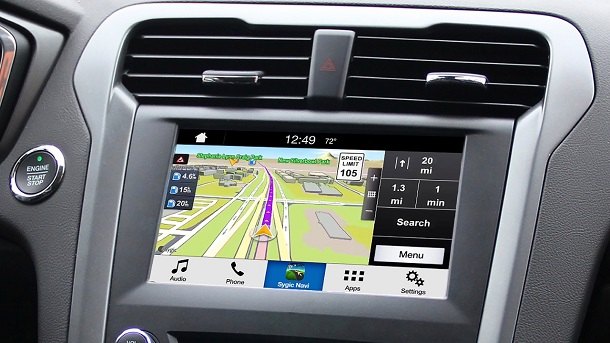

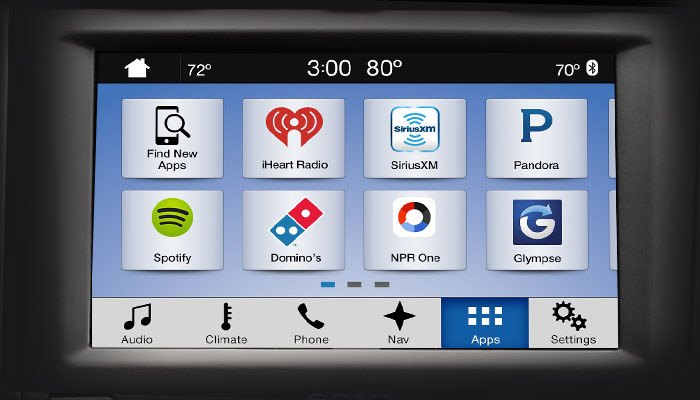

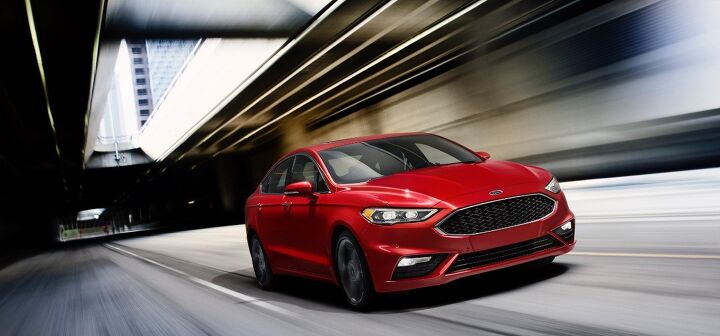

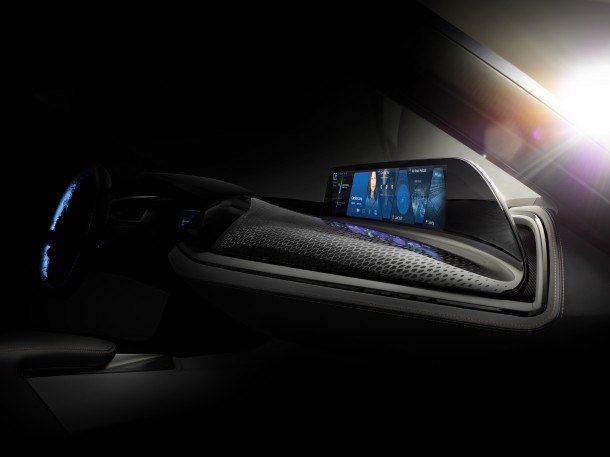

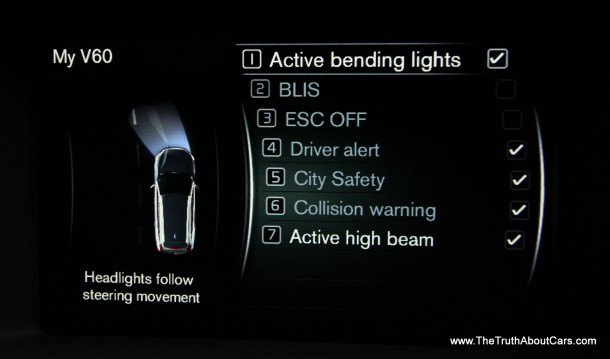

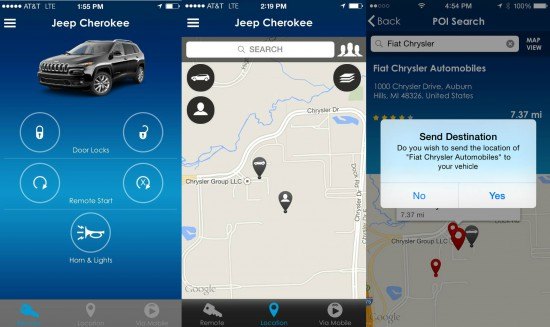













Recent Comments